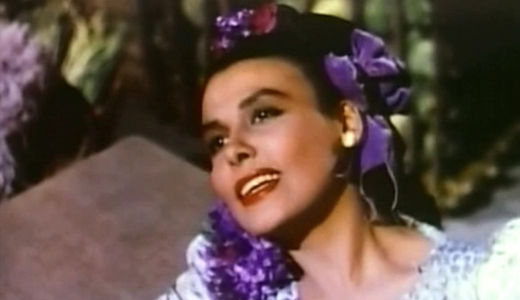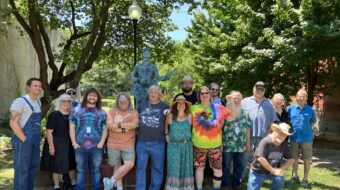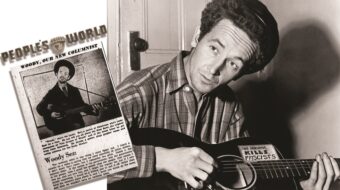
Lena Horne, an African American pioneer who fought for equality as an artist-activist, died May 9 at age 92. She is remembered as a crusader for civil rights and a symbol of black pride.
In a statement President Obama said Horne was “one of our nation’s most cherished entertainers.”
Obama continued, “From the time her grandmother signed her up for an NAACP membership as a child, she worked tirelessly to further the cause of justice and equality. In 1940, she became the first African American performer to tour with an all white band. And while entertaining soldiers during World War II, she refused to perform for segregated audiences – a principled struggle she continued well after the troops returned home.”
Obama said he and First Lady Michelle Obama “join all Americans in appreciating the joy she brought to our lives and the progress she forged for our country.”
Horne broke new ground for black performers during the 1940s after signing a long-term contract with MGM. She made appearances in several movie musicals at the time. But the studio made sure her scenes could be easily cut from the film when it played in the South, where Jim Crow racism ran rampant, and white audiences saw black actors as only playing servants or savages. Horne refused to play maids and other stereotypical roles for black actors.
Horne was unafraid to take on racism, and during World War II she criticized the way black soldiers were treated. She also collaborated with First Lady Eleanor Roosevelt in passing anti-lynching legislation in Congress.
When her tenure ended with MGM, Horne said she, along with her friend Paul Robeson and countless others were blacklisted from Hollywood during the 1950s anti-communist McCarthy period.
In the early 1960s, Horne became increasingly active, participating in numerous marches and protests. She marched with Medgar Evers in Mississippi and Martin Luther King Jr. in Washington.
Born in 1917, Horne is considered part of the “greatest generation” that fought fascism and discrimination, yet, in many ways many African Americans and others of that time were lost to a crippling and violent national prejudice towards blacks and people of color.
“But she was also a symbol, in the best sense of the word, of what it takes to get through stormy weather to the rainbow on the other side,” notes a recent Boston Globe editorial.
Horne is most remembered for her 1943 role in an all-black musical called “Stormy Weather,” which was the title song she sang in the film that became her signature performance.
Although blacklisted in Hollywood, she triumphed on Broadway, TV and on the concert stage as well as on some 40 albums.
Later in life Horne is also remembered as playing Glinda the Good Witch in “The Wiz,” the movie version of the all-black Broadway musical based on “The Wizard of Oz.”
She was also a frequent guest to Sesame Street, where she transformed Joe Raposo’s “Being Green” into a personal testament of breaking racial barriers.
In 1981, Horne was back on Broadway in a one-woman show, “Lena Horne: The Lady and Her Music,” telling her story which ran for 14 months and won rave reviews and two Tony Awards.
Horne’s career represents a trailblazing life of someone who fought back with a fierce sense of identity as a black woman and a leading lady. She showed and proved to the world, many note, that despite racial prejudice, being black is beautiful.
Even though Horne suffered the same discrimination that kept other blacks from living up to their full potential, she never denied her heritage.
Writing in the Washington Post Eugene Robinson called Horne an “infiltrator” and one of the most significant American entertainers of the 20th century.
“She was able to bridge the gap between black and white in a way that others could not,” writes Robinson. “She could be vocal, even strident in her advocacy for civil rights; she could be a proud black woman who stood up for African American causes and refused to back down. But she could do all of this without ever seeming alienated.”
He adds she would sing “Stormy Weather” on the Ed Sullivan show and “she would own the stage – a glamorous, elegant revolutionary who helped change the way American eyes perceived black and white.”
Reflecting on her achievements Horne at age 80 said: “My identity is very clear to me now. I am a black woman. I’m free. I no longer have to be a ‘credit.’ I don’t have to be a symbol to anybody; I don’t have to be a first to anybody. I don’t have to be an imitation of a white woman that Hollywood sort of hoped I’d become. I’m me, and I’m like nobody else.”
Photo: Lena Horne in the film “Till the Clouds Roll By,” 1946. (Public Domain)












Comments